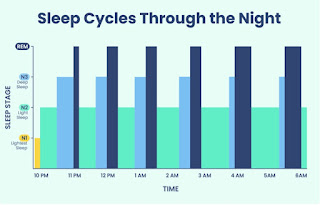Dear Students, Faculty, Residents, Staff, Alumni, Board Members and Friends,
Greetings on this first day of March! It’s been another busy week on campus as well as down in Atlanta where many of our optometry faculty, residents and some students have been participating in the Southern Educational Council of Optometry meeting. I wanted to extend my thanks to Megan Weyler and the Drexel Human Resources team for taking the time on Monday to provide an overview of Drexel Human Resources to Salus faculty and staff. We know that many questions are still unanswered, but this was a great first step in helping everyone to understand some of the tools that will be available us as we continue to navigate through the merger. Much more granular, individualized information will be available to all of us in early Spring, after our teams have had the opportunity to complete a line-by-line comparison of all of our benefits. In the interim, I encourage all faculty and staff to visit the Drexel HR website to learn more about what’s offered to us. Here are some things I hope you will find of interest:
SALUS FASHION, TAKE ONE: As Salus University’s general counsel and compliance officer, Brian Zuckerman, JD, thinks his workday attire can feel a bit repetitive. For him, socks are an opportunity to show a little bit of individualism. Socks that make a statement are something I know a little about as well. Click here to check out the first of three stories about fashion at Salus.
AUDIOLOGY AWARD: Aaron Roman, AuD, CCC-A, FAAA, an assistant professor in the University’s Osborne College of Audiology (OCA), has been named an Early-Career Audiologist Award winner by the American Academy of Audiology (AAA). Dr. Roman is in his second year at the University, where he teaches courses in the residential Doctor of Audiology (AuD) program and serves as a clinical audiologist providing comprehensive care at the on-campus clinical facility, the Pennsylvania Ear Institute. He also serves as a clinical preceptor for AuD students and works with pediatric and adult populations. To read more, click here.
WHY SALUS: Hear directly from Salus University’s Speech-Language Pathology (SLP) students on why they chose our SLP program. Click here for details.
A CLOSER LOOK AT DREXEL: As we continue the integration process with Drexel University, we wanted to take a deep dive into Drexel’s academics and student life. Click here to learn more.
FINAL THOUGHTS: Over the past few weeks, I’ve touched upon several subjects that are associated with the stressors we see in our lives to include loneliness, bullying, and gun violence. Today, after having to get up at 3 AM to catch an early morning flight I thought I’d address another stressor, one that many of us deal with routinely. That is sleep deprivation. While attending the continuing education meeting of the Association of Armed Forces and Federal Optometric Services (AFOS) in Atlanta this past week I had the opportunity to attend a very insightful lecture on this very topic, which prompted me to do some additional research. I’d like to share some of my take-aways from the lecture and what I found in the literature that I’m certain is applicable to everyone reading this update.
According to the Sleep Foundation, as we sleep, we cycle through four stages of sleep. The first stage can last between one and seven minutes. You are probably not dreaming but just starting to relax. During the second stage of sleep, we are more relaxed. Our breathing, heart rates slow and brain activity slows. This stage lasts between ten to twenty-five minutes. During the third phase of sleep, also called “slow or delta wave” sleep we are in much deeper state, more relaxed, and much harder to wake. Sleep experts believe this is the restorative phase of our sleep cycles where the brain has a chance to rest and even assists with memory and creativity. It may also bolster the immune system and other key bodily processes. This phase can last from twenty to forty minutes. The fourth phase of sleep is REM (Rapid Eye Movement) sleep, where our brain becomes more active. While we can dream in any of the sleep phases, the dreams we have during the REM stage tend to be more vivid. Most people will not enter REM sleep until they have been sleeping for up to ninety minutes. REM sleep is believed to be essential for cognitive functions such as memory, creativity and learning. We cycle through these phases several times during the night (or when we sleep) – see diagram below.
Just like doing exercise to ensure we maintain a healthy cardiovascular system and shower every day to ensure we have good general hygiene, paying attention to our sleep hygiene is also an important habit to get into.
It’s important to develop a consistent sleep schedule. To obtain this you should have routine exposure to nature daylight, avoid screen time and alcohol a couple of hours prior to bedtime as well eliminating noise and ambient light from your sleep environment. This will also help to properly adjust your circadian rhythm, the twenty-four internal clock in our brain that regulates cycles of alertness and sleepiness by responding to changes in our exposure to natural light in our environment. While this may seem like common sense, many of us have a difficult time practicing good sleep hygiene on a regular basis.
As we try to address stressors in our lives, getting enough good sleep on a regular basis can play a key role in how we are able to navigate through the many things confronting us daily. As you prepare for the weekend, and many of you, national boards, try to work on improving your sleep hygiene as I believe it will pay dividends in overall performance academically and personally.
Be safe, get some rest, look out for one another, and remain SALUS STRONG!
- Mike


No comments:
Post a Comment